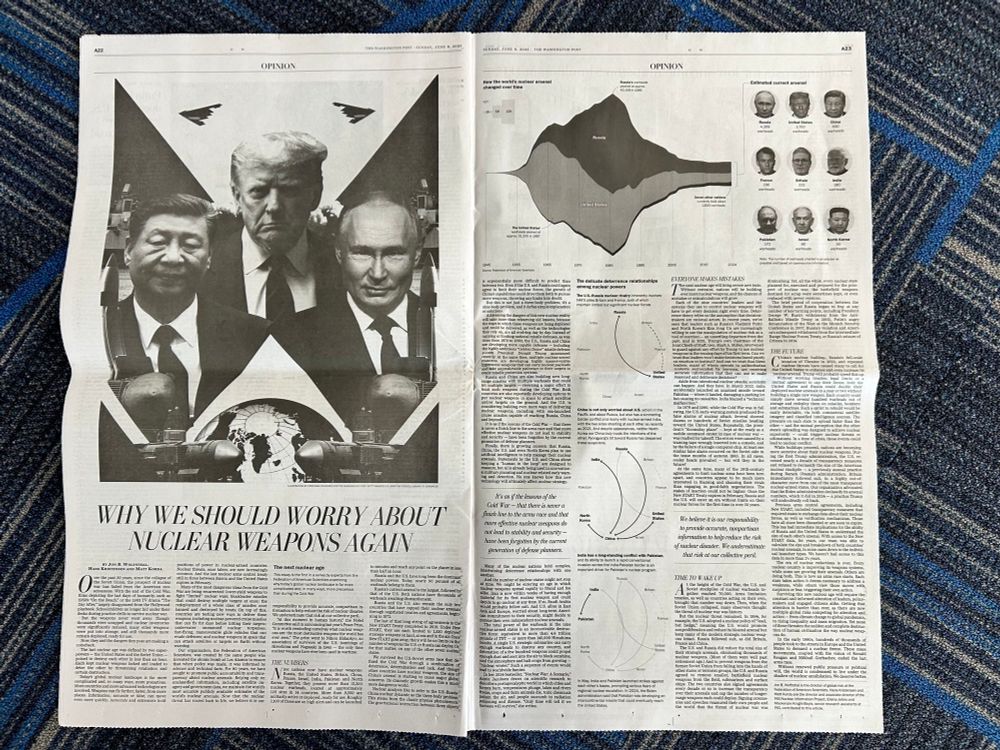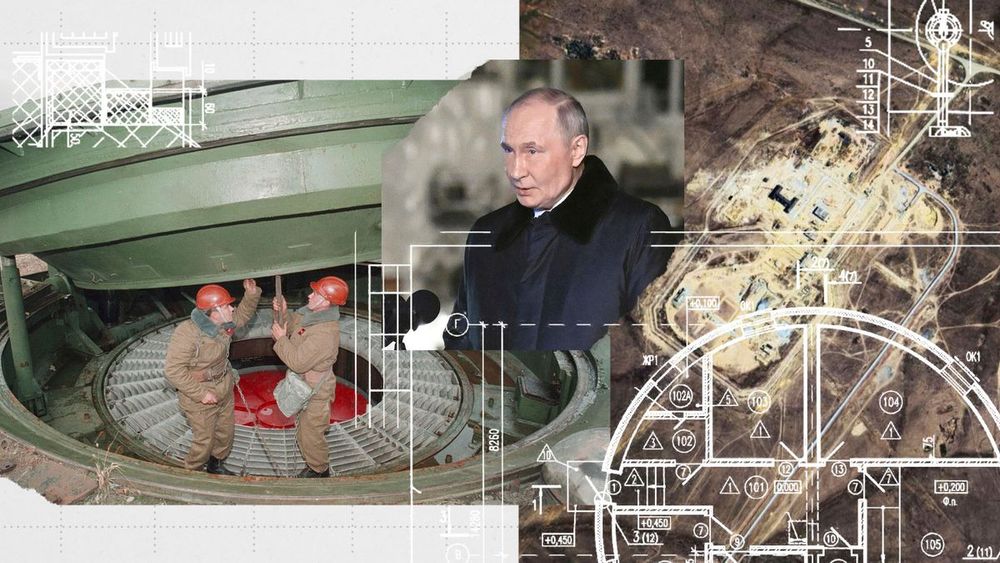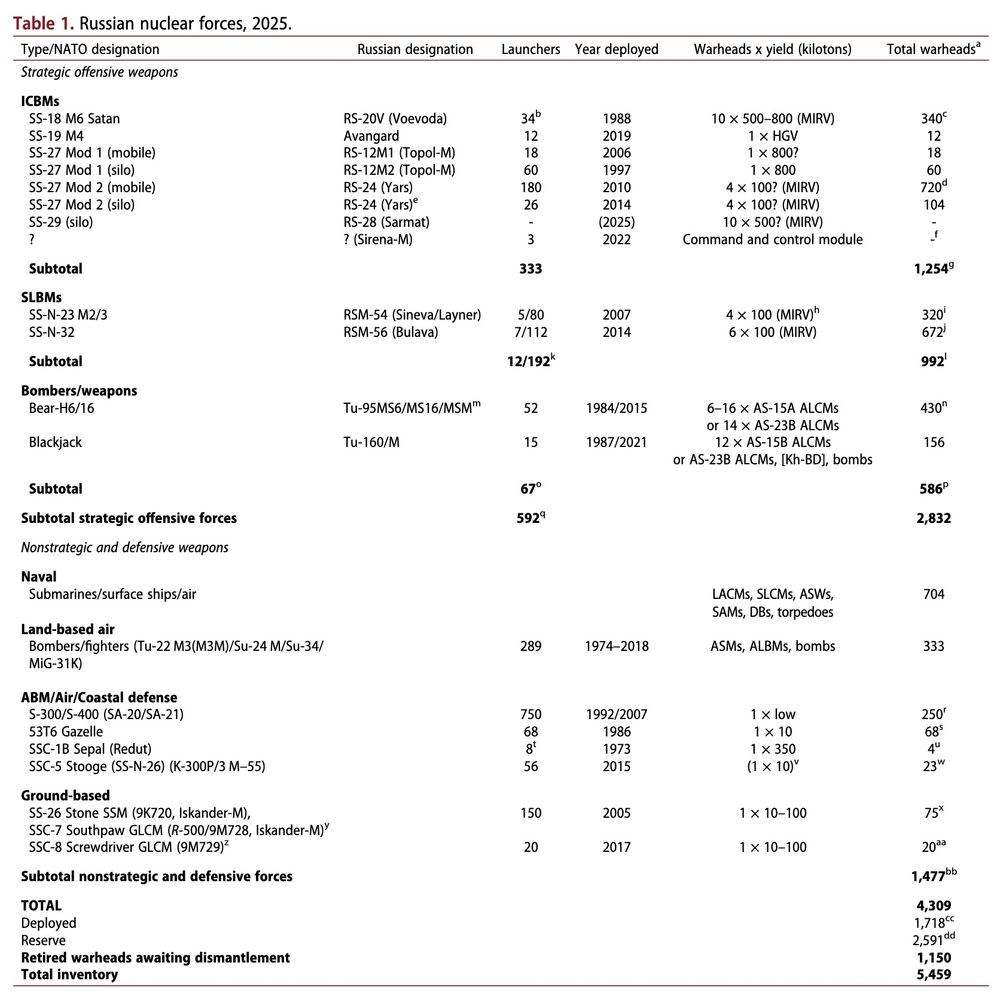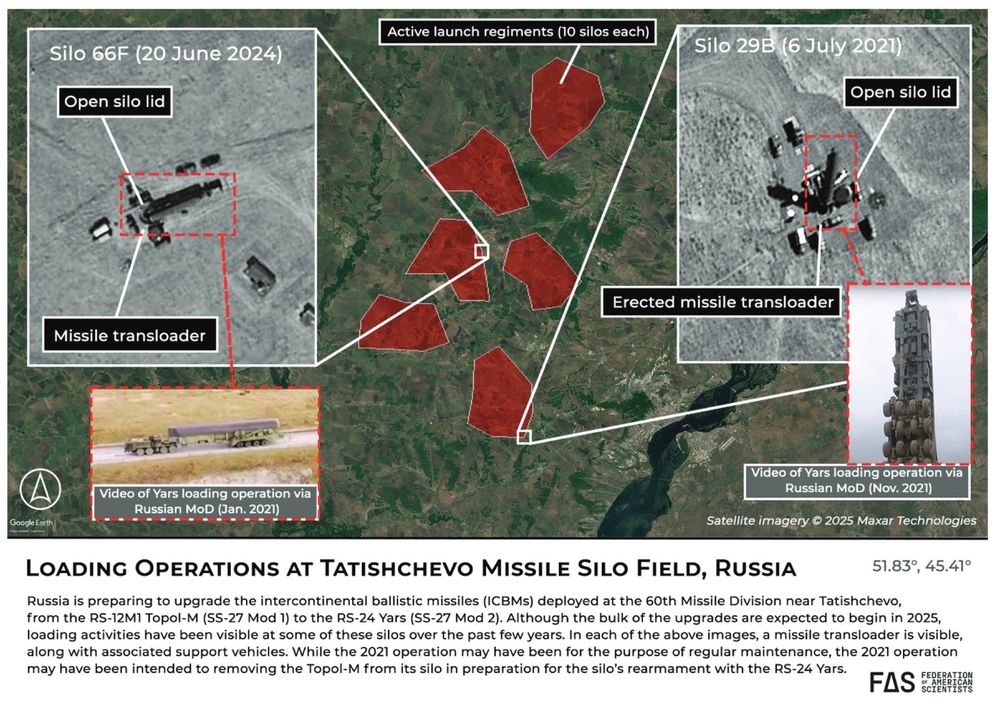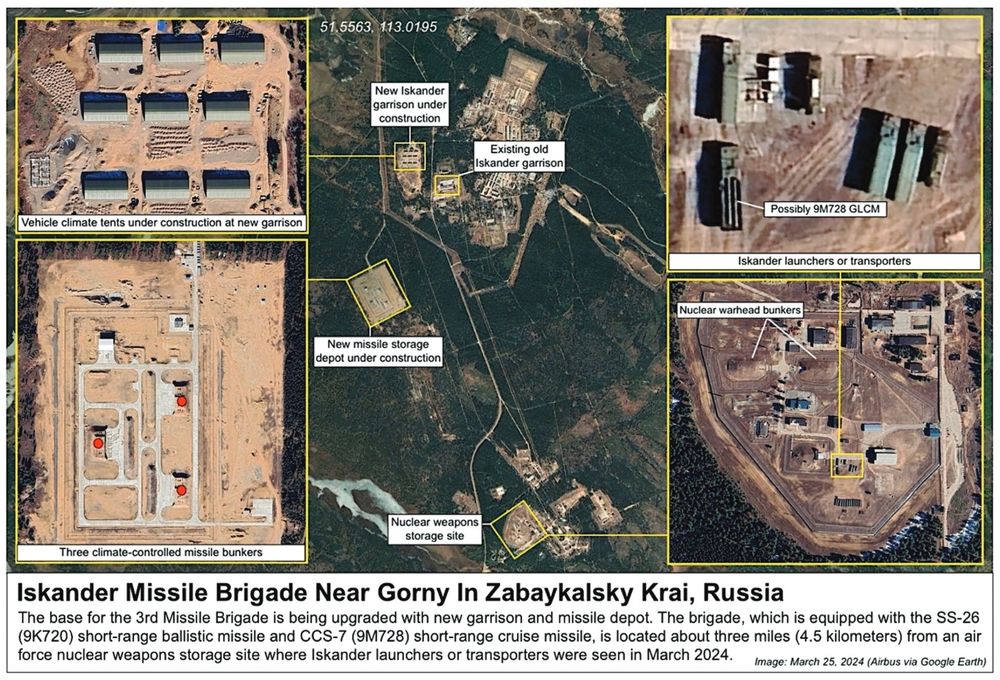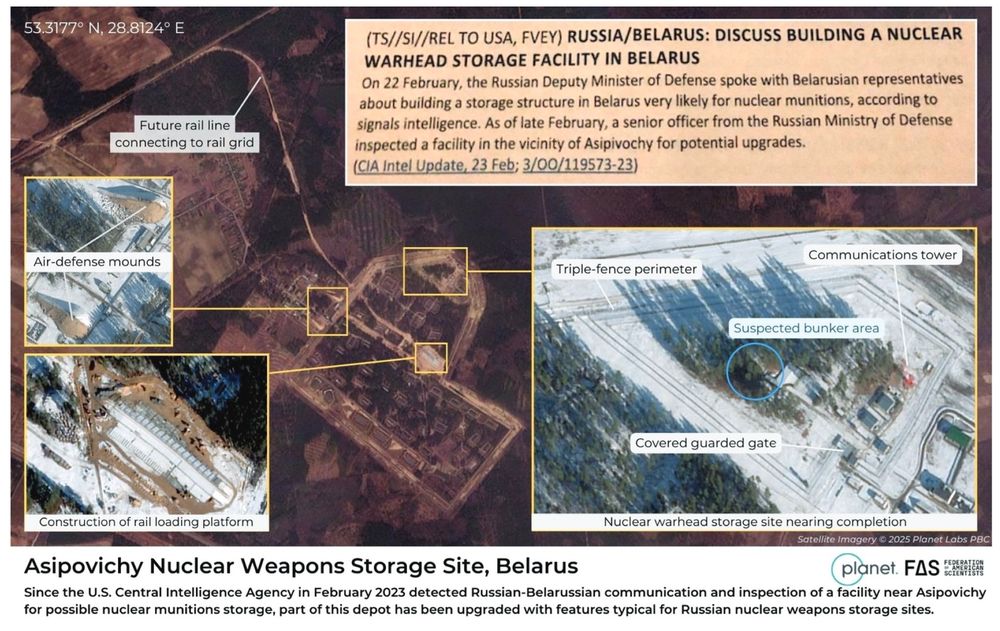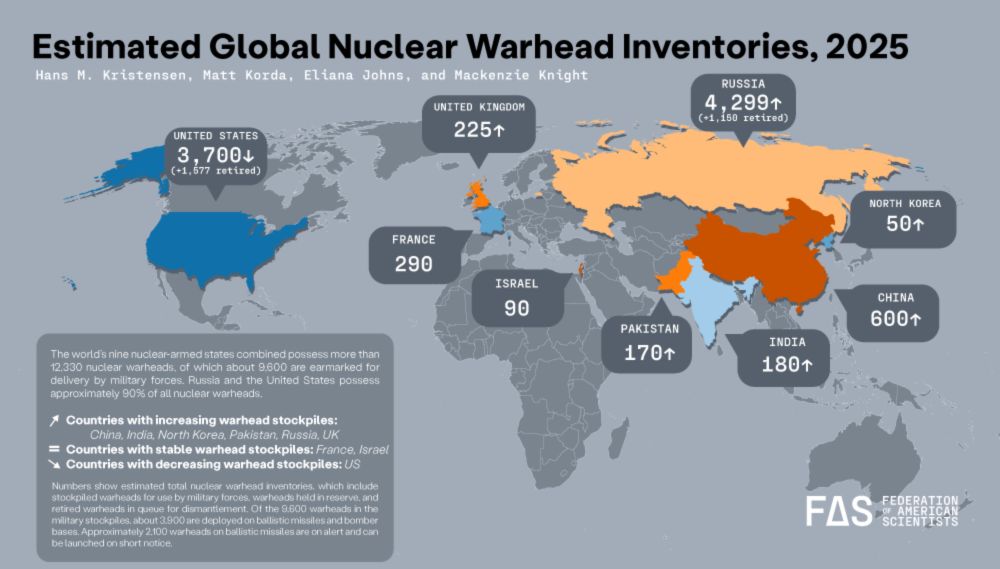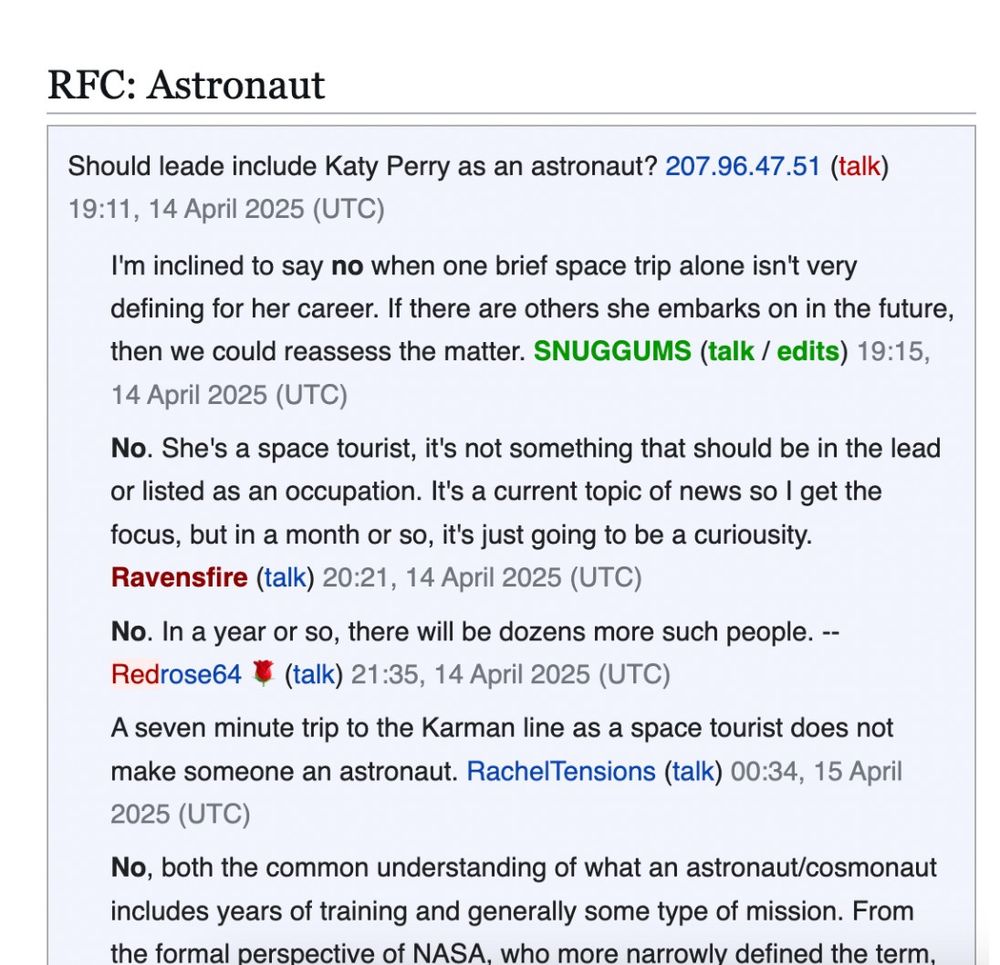Matt Korda
@mattkorda.bsky.social
4.3K followers
1.7K following
22 posts
I count nukes for the Federation of American Scientists + the Stockholm International Peace Research Institute. 🇨🇦 Views my own.
Posts
Media
Videos
Starter Packs
Reposted by Matt Korda
Matt Korda
@mattkorda.bsky.social
· Jul 4
Reposted by Matt Korda
Reposted by Matt Korda
Reposted by Matt Korda
Matt Korda
@mattkorda.bsky.social
· Jun 24
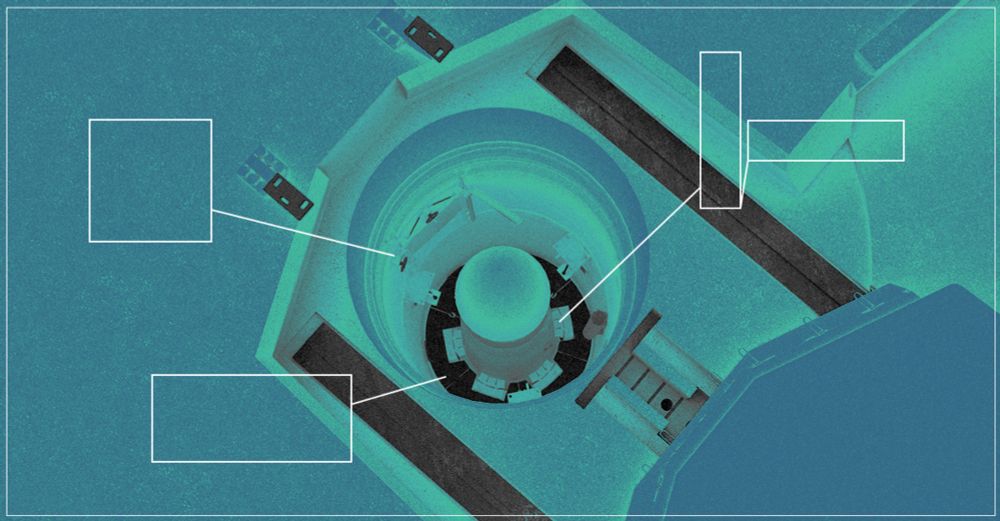
The Two-Hundred Billion Dollar Boondoggle - Federation of American Scientists
Nearly one year after the Pentagon certified the Sentinel intercontinental ballistic missile program to continue after it incurred critical cost and schedule overruns, the new nuclear missile could on...
fas.org
Reposted by Matt Korda
Emma™
@cockremover.bsky.social
· Jun 24
Matt Korda
@mattkorda.bsky.social
· Jun 24

The Two-Hundred Billion Dollar Boondoggle - Federation of American Scientists
Nearly one year after the Pentagon certified the Sentinel intercontinental ballistic missile program to continue after it incurred critical cost and schedule overruns, the new nuclear missile could on...
fas.org
Reposted by Matt Korda
Reposted by Matt Korda
Hans Kristensen
@nukestrat.bsky.social
· Jun 16
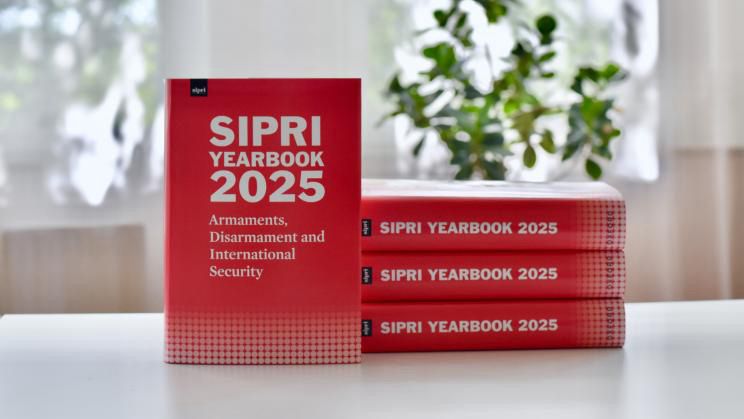
Nuclear risks grow as new arms race looms—new SIPRI Yearbook out now
(Stockholm, 16 June 2025) The Stockholm International Peace Research Institute (SIPRI) today launches its annual assessment of the state of armaments, disarmament and international security. Key findi...
www.sipri.org
Reposted by Matt Korda
Reposted by Matt Korda
Reposted by Matt Korda
Reposted by Matt Korda
Reposted by Matt Korda
Amelia
@ameliamar.bsky.social
· May 8
Reposted by Matt Korda
Reposted by Matt Korda
Jerry Chen
@jcsalterego.bsky.social
· Apr 29
Reposted by Matt Korda
Reposted by Matt Korda
Hans Kristensen
@nukestrat.bsky.social
· Apr 21
Carnegie Endowment
@carnegieendowment.org
· Apr 21

2025 Carnegie International Nuclear Policy Conference
For over 35 years, experts, officials, executives, journalists, and students from across the globe have come together to debate—and explore solutions for—the most pressing challenges in nuclear nonpro...
carnegieendowment.org






